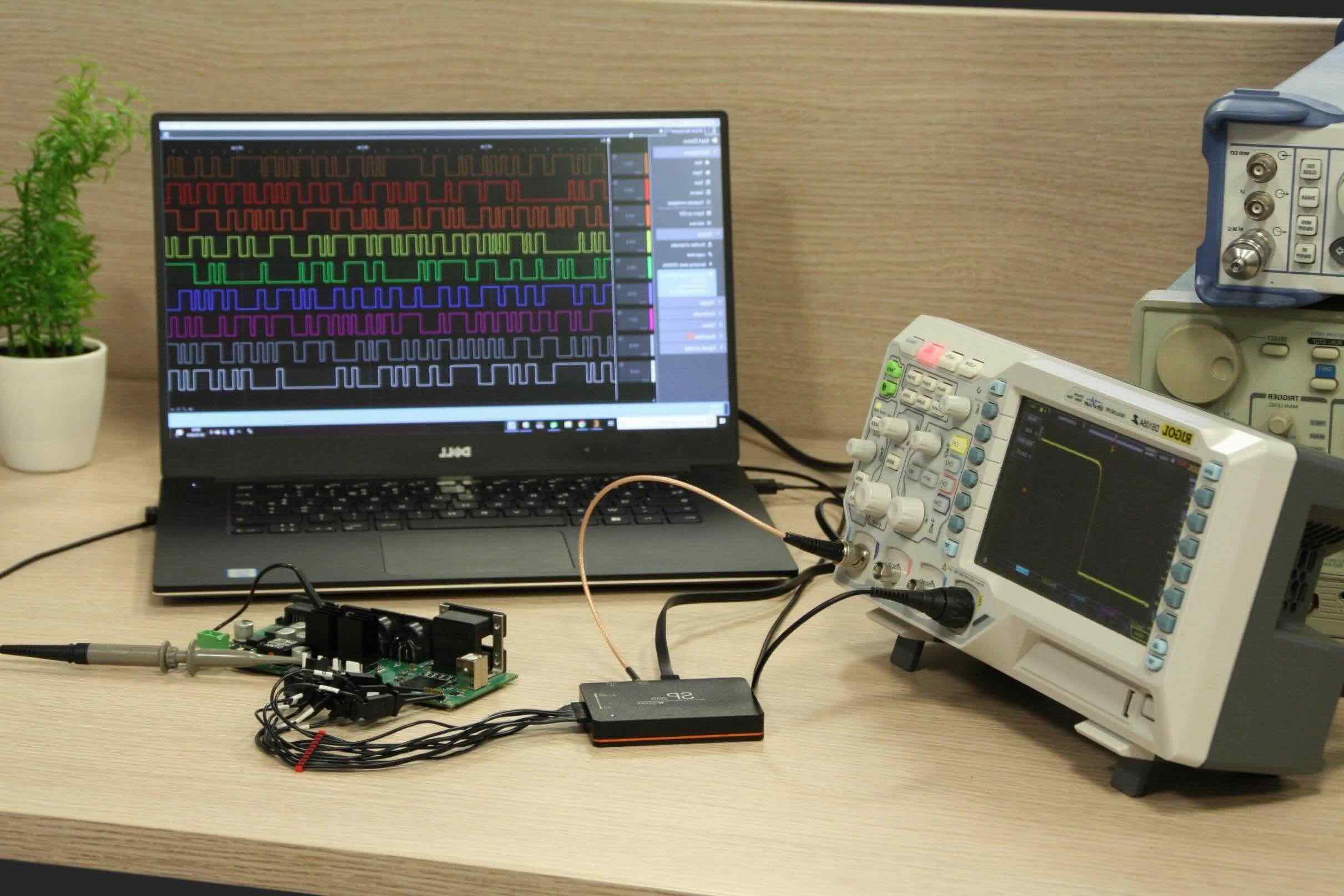
What is a logic analyzer? A logic analyzer is a powerful tool used to capture and display multiple signals from a digital system. Think of it as a supercharged oscilloscope for digital circuits. It helps engineers and hobbyists debug and verify complex digital designs by showing how different signals interact over time. With a logic analyzer, you can see the exact sequence of events in your circuit, making it easier to spot errors and optimize performance. Whether you're working on a microcontroller project, designing a new piece of hardware, or just curious about how digital systems work, a logic analyzer can be an invaluable resource.
What is a Logic Analyzer?
A logic analyzer is a powerful tool used in electronics to capture and display multiple signals from a digital system. It helps engineers and hobbyists debug and verify digital circuits.
- Logic analyzers can capture and display multiple signals simultaneously, making them essential for debugging complex digital systems.
- They are used to analyze the timing relationships between different signals in a circuit.
- These devices can store large amounts of data, allowing for detailed analysis of signal behavior over time.
- Logic analyzers often come with software that provides advanced features like protocol decoding and data filtering.
How Does a Logic Analyzer Work?
Understanding the working principles of a logic analyzer can help you make the most of this tool.
- A logic analyzer samples digital signals at high speeds, capturing the state of each signal at regular intervals.
- The captured data is then displayed as waveforms, making it easy to see the timing relationships between signals.
- Many logic analyzers use triggering to start data capture when specific conditions are met, such as a particular signal pattern.
- Some models offer state analysis, which captures data based on the clock signal of the system being tested.
Types of Logic Analyzers
Different types of logic analyzers cater to various needs and applications.
- Standalone logic analyzers are dedicated devices with their own display and controls.
- PC-based logic analyzers connect to a computer via USB or other interfaces, using software for display and control.
- Embedded logic analyzers are built into other test equipment, like oscilloscopes, providing additional functionality.
- Portable logic analyzers are compact and battery-powered, ideal for fieldwork and on-site troubleshooting.
Applications of Logic Analyzers
Logic analyzers are versatile tools used in various fields and applications.
- They are commonly used in embedded system development to debug microcontroller-based designs.
- Communication protocol analysis is another key application, helping engineers verify and troubleshoot protocols like I2C, SPI, and UART.
- In digital circuit design, logic analyzers help verify the correct operation of complex circuits.
- They are also used in reverse engineering to understand the operation of existing digital systems.
Key Features to Look For
When choosing a logic analyzer, certain features can make a big difference in usability and performance.
- Channel count is crucial; more channels allow for the analysis of more signals simultaneously.
- Sample rate determines how fast the analyzer can capture data, with higher rates providing more detailed information.
- Memory depth affects how much data can be stored for analysis, with deeper memory allowing for longer capture times.
- Triggering options are important for capturing specific events, with advanced models offering complex trigger conditions.
Advantages of Using a Logic Analyzer
Using a logic analyzer offers several benefits that can streamline the debugging and verification process.
- They provide a clear visual representation of signal timing, making it easier to identify issues.
- Logic analyzers can capture and store large amounts of data, allowing for detailed post-capture analysis.
- They often include advanced features like protocol decoding, which simplifies the analysis of communication signals.
- Using a logic analyzer can save time and effort compared to other debugging methods, like manually probing signals with an oscilloscope.
Challenges and Limitations
Despite their advantages, logic analyzers also have some challenges and limitations.
- They can be expensive, especially high-end models with advanced features.
- Setting up and configuring a logic analyzer can be complex, requiring a good understanding of the system being tested.
Final Thoughts on Logic Analyzers
Logic analyzers are powerful tools for anyone working with digital systems. They help you understand and troubleshoot complex circuits by capturing and displaying multiple signals simultaneously. With features like high channel counts, deep memory, and advanced triggering, these devices offer a comprehensive view of your digital environment.
Whether you're a hobbyist or a professional, a logic analyzer can save you time and effort. They simplify debugging, making it easier to identify issues and optimize performance. Plus, many modern analyzers come with user-friendly software that enhances their functionality.
Incorporating a logic analyzer into your toolkit can significantly improve your workflow. From diagnosing problems to verifying designs, these devices are invaluable. So, if you haven't already, consider adding one to your arsenal. You'll wonder how you ever managed without it.
Was this page helpful?
Our commitment to delivering trustworthy and engaging content is at the heart of what we do. Each fact on our site is contributed by real users like you, bringing a wealth of diverse insights and information. To ensure the highest standards of accuracy and reliability, our dedicated editors meticulously review each submission. This process guarantees that the facts we share are not only fascinating but also credible. Trust in our commitment to quality and authenticity as you explore and learn with us.
